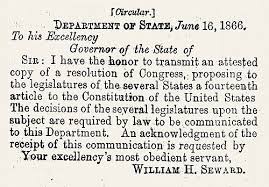The Importance and Impact of the 14th Amendment

Introduction to the 14th Amendment
The 14th Amendment is one of the most significant amendments to the United States Constitution, ratified in 1868, during the Reconstruction era. It addresses citizenship rights and equal protection under the law, marking a turning point in American civil rights history. Understanding the 14th Amendment is crucial, as it has been the cornerstone for numerous landmark Supreme Court cases and has continued relevance in today’s discussions around civil liberties and social justice.
Main Provisions of the 14th Amendment
The 14th Amendment consists of several key provisions, including the Citizenship Clause, which grants citizenship to all persons born or naturalised in the United States; the Due Process Clause, which prohibits states from denying individuals their rights without legal proceedings; and the Equal Protection Clause, which requires states to provide equal protection under the law to all persons.
Historical Context
Ratified in the aftermath of the Civil War, the 14th Amendment aimed to establish and protect the rights of former slaves. Its introduction was a response to the Black Codes implemented by Southern states that sought to limit the rights of African Americans. Over the years, this amendment has provided a legal framework for challenging injustices and protecting civil rights.
Key Supreme Court Cases
The 14th Amendment has been cited in numerous influential cases that have shaped American law. For instance, the landmark case of Brown v. Board of Education (1954) used the Equal Protection Clause to declare segregation in public schools unconstitutional. More recently, in Obergefell v. Hodges (2015), the Supreme Court ruled that same-sex marriage is a constitutional right, reinforcing the amendment’s role in advancing equality.
Conclusion: Ongoing Significance
Today, the 14th Amendment continues to be pivotal in debates surrounding immigration, voting rights, and racial equality. As new challenges arise, including discussions on police reform and voter suppression, the principles enshrined in this amendment remain as vital as ever. Legal scholars and activists alike argue that the 14th Amendment must be at the forefront of efforts to secure civil rights for all individuals in the United States. For readers, understanding the 14th Amendment is not just about history; it offers insight into the ongoing fight for equality and justice in contemporary society.






